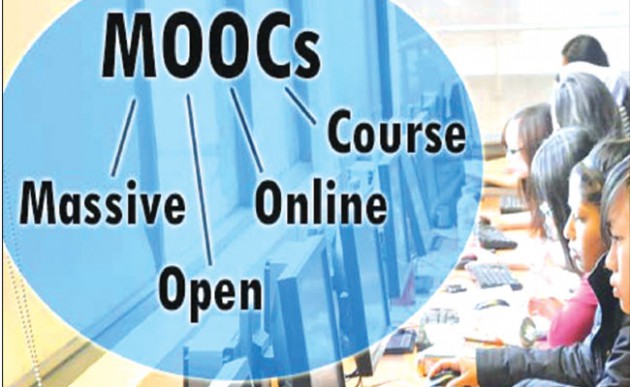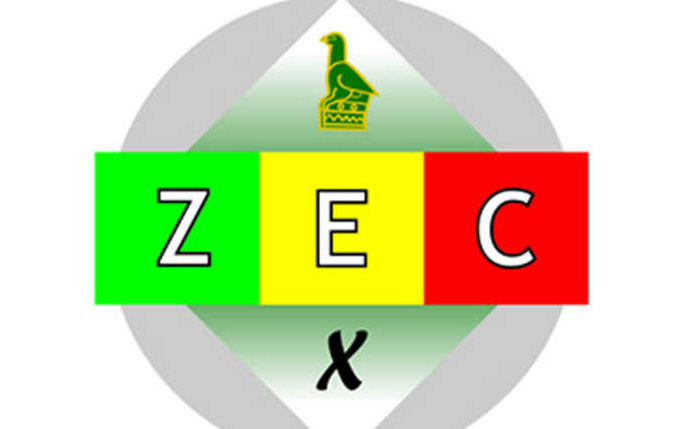Failure is refusal to learn anew — in a digital age


The great thing about MOOCs as one writer observed is they “can be offered to an unlimited number of employees, without any additional cost, as there aren’t any printed learning materials or instructor costs involved
Delta Milayo Ndou#DigitalDialogue
I don’t know if the experience was exclusive to me, but I recall how long distance learning and night school were perceived as less-than-impressive activities pursued by those who had failed to garner enough grades to make it into conventional educational programmes.
There was a bit of condescension directed at colleges that sprouted everywhere and took in students who had failed to amass the required 5 ‘O’ Levels which benchmarked secondary education and often represented a watershed in a teenager’s life.
Nothing devastated a teenager’s academic aspirations like getting bad ‘O’ Level results, because that failure was often the first failure one would endure alone as most families tended not to rally behind “failures” — I don’t know if that has changed.
What I do know is that my perception of what it means to fail is vastly different from what it was when I was younger, because back then I framed failure exclusively in terms of grades.
Hence, in pursuit of my father’s approval, I worked harder at school than many of my age-mates in the clan, and got rewarded by having proud adults in the family frequently parade me before strangers and command me to “speak my English”.
Apparently, it was important for these strangers to know that the Ndous were capably raising a very articulate speaker of the Queen’s language.
Although my childhood interest in education was motivated more by the desire to please my father than it was by any real appreciation of the value of education — I grew up with an appetite for knowledge, a desire to learn and a curiosity to figure out things that confounded me.
I am now of the view that failure is the refusal to learn anything new, more so in a digital age where the opportunities to learn are manifold.
Reflecting on how people that went to night school or who pursued long distance learning were viewed as less competent scholars, I wince.
It takes a level of determination and greater effort to pursue a conventional education format in an unconventional set-up because you must self-supervise and go it alone. I respect anyone who is pursuing knowledge and I don’t care how they are going about it.
Therefore, I love the concept of MOOCs (Massive Open Online Courses) and online video tutorials as knowledge-transmitting tools — to me they are the digital equivalent of “long distance learning” that so many scoffed at when we were growing up.
What new knowledge has your workforce acquired lately?
I have written about MOOCs before and I won’t rehash previously stated points, but I do want to reflect on the potential of MOOCs to be harnessed by corporates as a means of upskilling their staff.
I stumbled across an interesting article recently by Benjamin Stecher who argues that; “The ability to adapt and learn something new should be valued above all else. Gone are the days where you pick a profession and just do that one thing for the rest of your life. People will need to know how to learn something new multiple times over in their lives.”
If people will need to learn something new multiple times over in their lives, it makes sense to adopt MOOCs for corporate eLearning locally.
Adopting MOOCs as a corporate eLearning endeavour would mean spending far less on staff development budgets or hiring pricey consultants to do workshops informed by trends that get replaced within weeks owing to the rapidity with which technology is transforming sectors.
MOOCs, in the context of corporate training, are less disruptive to the working routine seeing as lessons are delivered via video tutorials which employees can access when it suits their schedule as opposed to having staff spending two days holed up at some workshop venue ‘doing training’.
Why must everyone abandon their posts to ‘do training’ for two days based on material that might be outdated in a few months?
A better and more cost-effective approach would be for Human Resources to identify the skills gap and craft a skills oriented curriculum and then task a competent trainer to identify suitable MOOCs for corporate training or develop new eLearning content tailored for the needs of the organisation — that would be value for money.
The great thing about MOOCs as one writer observed is they “can be offered to an unlimited number of employees, without any additional cost, as there aren’t any printed learning materials or instructor costs involved. Employees can simply log on to access the MOOC at a time when it won’t conflict with their work responsibilities or personal life, which means that they will be more likely to get the full benefit from the online training material.”
And because the MOOCs will require individual assessment, it is easy for HR to identify which employees have not bothered to apply themselves to mastering the new concepts — in training workshops you always get back benchers who’ll spend the duration of the training stuffing their faces and contributing nothing to the discussions being had.
As Benjamin Stecher puts it; “People will need to know how to learn something new multiple times over in their lives. Not only because it will be the only way you’ll still be able to contribute to society, but also because our knowledge of the world and who we are is progressing incredibly quickly.”
The only way to contribute to the success of an organisation is to be willing to keep learning, multiple times over, but because most institutions do not transform — old knowledge, old dogs and old business models stubbornly prevail even in the face of threats posed by digital disruption and the Internet.
Go it alone, if you must
Christopher Pappas is something of an evangelist with regards to the eLearning industry and has written widely on the subject so any HR practitioner interested in MOOCs for corporate eLearning would do well to ‘google’ him.
The discussion around the benefits of MOOCs for corporate eLearning has been ongoing for at least half a decade but in our typical technological laggardness as a country, the conversation is yet to fully mature in our discourses around staff development and training — even as glaring gaps in digital skills become apparent within our institutions.
I have written in the past about the folly of deferring technology adoption, the idea that it ‘can wait’ whilst more pressing matters are attended to.
I imagine there is no matter more pressing now than making sure you have a competent workforce, with the requisite digital skills to steer the organisation forward amid emerging technological rapids — whatever sector you are in.
To quote Christopher Pappas; “Skills are a precious commodity in the corporate world” so if you happen to work for an organisation that will not invest in staff development, then you should consider going it alone.
Go online and find a MOOC that will help you be more competitive in your industry or help you change careers altogether.
If skills are a precious commodity, I would urge you to sit down and take a digital skills audit of yourself — what can you do?
And skills are more than just knowledge — they are more than knowing a thing; skills are about DOING the thing you know about. So, learn how to DO things and don’t just be content with knowing ABOUT things.
Increasingly, recruiters are prioritising skill over just knowledge. We often conflate knowledge with skill because skill is a manifestation of knowledge — you are only able to do something because you are knowledgeable about it.
But sometimes knowledge doesn’t translate into skill or the ability to execute — which is what gets scornfully referred to as being simply bookish and theoretical.
Find a MOOC or find a video tutorial that will teach you how to do something you could not do before. Learn something new, something useful, something relevant to the digital age you live in.
And remember, a person can never hope to be more than what they are if they are not first honest about what they are not (to paraphrase Don Williams).
- Delta is a digital evangelist who advocates for technology-driven solutions. Follow her on Twitter: @deltandou






Comments